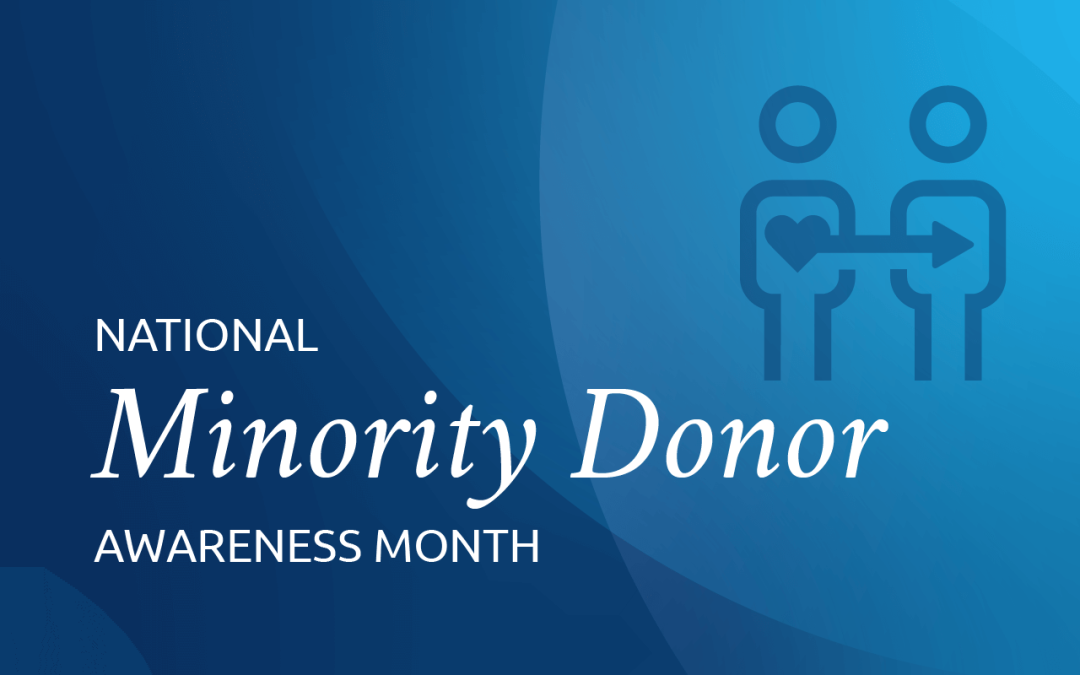August is National Minority Donor Awareness Month, a cause for both celebration and a call to action.
Did you know that nearly two-thirds of the candidates waiting for a kidney transplant nationwide are from racial or ethnic minority backgrounds? Kidney disease is understood to disproportionately affect communities of color; Black and Brown communities have higher incidence rate of diabetes and high blood pressure, the two leading causes of end stage renal failure among patients listed for a kidney transplant.
There are systemic, ongoing issues that make equitable access to basic healthcare and insurance difficult, especially for historically marginalized communities. Within donation and transplant, the community is working each and every day to improve equity for all patients on the national waitlist.
August is an important time to honor and recognize the importance of this work, as well as those from minority communities who have chosen to give the gift of life – as living donors or deceased donors – and now serve as an inspiration to others.
The proportion of deceased donors who are Black or Hispanic has increased considerably over time and now tracks largely with their representation within the U.S. population. Still, there remains a need for more minority donors. Immune system matching is one of the factors used in kidney transplantation, and often the closest donor/patient matches come from people with similar ethnic backgrounds.
Equity is an issue we focus on all year – not only in August, as our Board President Jerry McCauley, M.D. outlined last year.
The OPTN actively tracks measures of equity in access to transplant for waiting list candidates every day, and this important tool is available to members of the public. Changes made in 2014 in how we allocate donor kidneys have dramatically improved equity amongst minority communities, and have largely removed race or ethnicity as factors impacting transplant access for candidates on the waitlist. Additionally, the Board of Directors recently approved a policy that now requires transplant hospitals to no longer consider race when estimating a patient’s kidney function. The action will ensure that all candidates are assessed more equitably.
Despite these successes in improving equity of waitlisted patients in need, there is more we must do across the nation’s donation and transplant community in order to continue addressing disparities and increasing equity, especially in access to getting evaluated and listed for a transplant.
With that in mind, we encourage you to register as an organ donor today. You can click here to do so. It takes less than thirty seconds, and your decision may help save up to eight lives.
It’s hard to think of a better way to celebrate National Minority Donor Awareness Month.

